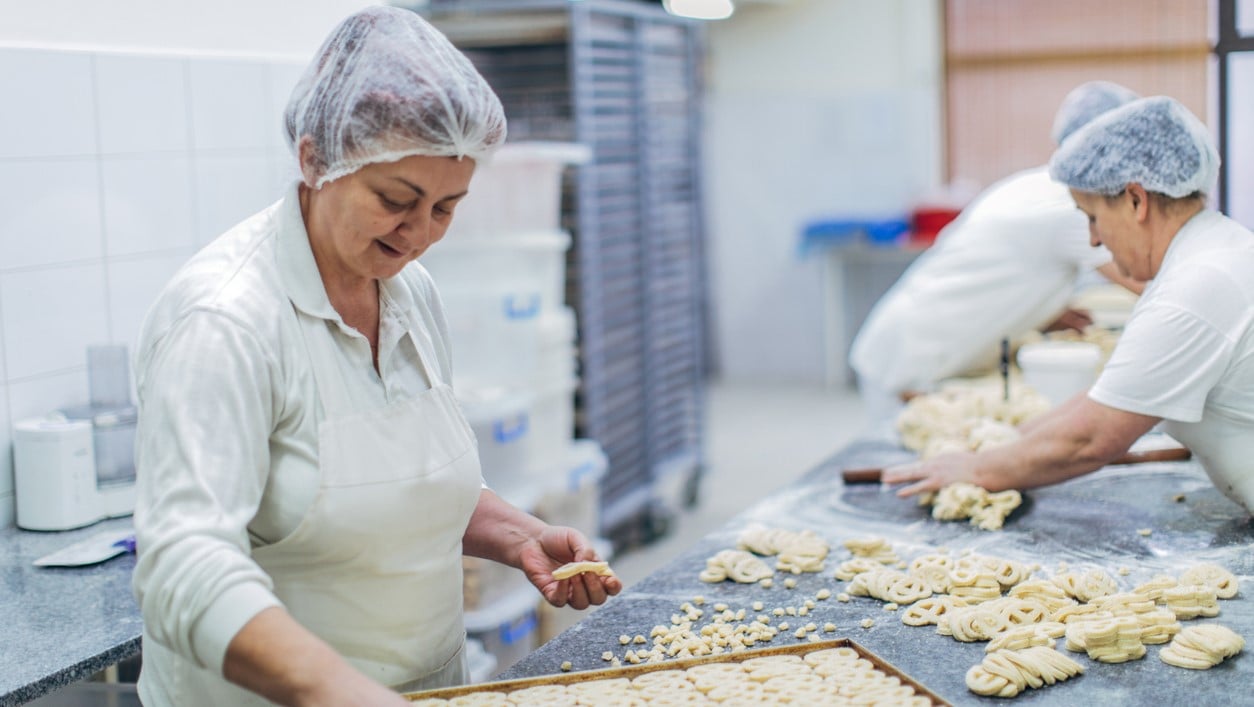How to Ensure Temporary Food Workers Uphold High Food Safety Standards
Food and beverage companies notoriously struggle to retain workers in food processing roles, and often find it difficult to even fill these positions in the first place. As The Wall Street Journal reports, the industry increasingly turns to temporary food workers to fill these vacant roles and keep their operation afloat. But while this does help improve shift coverage and maintain productivity, relying on temporary labor comes with a number of risks, especially to food safety.
Food and beverage companies have no control over the labor market, but there are a number of strategies they can use to help temporary food workers uphold the food safety standards needed to protect their reputations as well as public health. It may take careful planning and additional resources, but enhanced food safety is well worth the investment.
5 Tips to Ensure Temporary Food Workers Uphold High Food Safety Standards
Temporary food workers have the potential to unintentionally undermine food safety standards, but only when they lack the proper training and oversight. These five strategies can help mitigate the risk:
1. Streamline Food Safety Policy Documentation
Food safety policies are incredibly complex and often require dense documentation. While thoroughness is necessary to ensure safety, overly long training materials can make it difficult for new workers to understand procedures and follow instructions. New employees are met with an overwhelming amount of information and stimuli, making it difficult to learn complex processes. Streamlining the volume, length, complexity, and design of policy documentation will more effectively educate employees about procedures, ultimately ensuring better compliance.
2. Provide Adequate Food Safety Training
Before temporary food workers’ first shift on the floor, provide detailed training about the food safety protocols and procedures they must follow, prioritizing the most important information to maximize efficiency. Temporary food workers have a high turnover rate, so if training takes too long, the time, effort, and cost involved won’t be worth it. Try to focus as much as possible on just the procedures or policies they need to know for their specific role, rather than highlighting company culture or food safety values.
3. Assign Temporary Workers to Appropriate Tasks
Even with proper training, temporary food workers’ lack of familiarity with processes and food safety standards can endanger food safety, so it’s important to limit their involvement in high-risk tasks. For example, avoid assigning temporary food workers to tasks involving measuring chemicals, food processing parameters, or performing batching processes. If necessary, reassign trusted full-time employees to more sensitive tasks and leverage temporary employees in less risky processes where full-time employees and CCTV cameras can monitor them.
4. Address Food Safety Issues Promptly
While monitoring performance, address compliance issues as soon as possible. Identify where the employee deviated from procedure and demonstrate what should be done instead. Where necessary, walk workers through corrective actions, including notifying supervisors about a food safety breach. A prompt response will help prevent additional incidents from occurring and minimize future disruptions to operation.
5. Incentivize Adherence
Rewarding good behavior is often more effective than punishing mistakes. Incentivize more rigorous compliance with food safety policies and procedures in as many ways as possible. Tangibly, management can reward top performers with bonuses and recognition, including cash bonuses, gift cards, and free merchandise. You may even introduce friendly competition to the mix and reward the employee who's most diligent about food safety.
On the emotional front, strive to create a positive workplace culture that celebrates dedication and effort. Use positive reinforcement when you see workers following procedures correctly or improving compliance metrics. This encourages frontline workers to take more ownership of their roles and their inherent responsibility to protecting public health.
Finding Temporary Food Workers Who Can Excel
No matter what’s happening in the labor market, production must go on. Temporary food workers can fill essential roles when full-time talent is unavailable. However, you may have to take extra precautions to ensure these workers uphold your company’s rigorous standards.
AIB International offers a wide array of support for food and beverage businesses trying to improve both compliance and productivity, providing a full spectrum of food safety, sanitation, and labeling education, including a detailed Food Safety Essentials course. This online training equips frontline workers with the skills they need to keep food safe.
Want to tap into AIB International’s extensive, vetted talent network? Explore our Assign an Expert service page.


